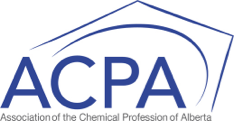Ethics
The ACPA sets standards for competency, fitness and moral character which will ensure that members of the Association meet standards that will protect industry and the public at large and generally reflect credit on the chemical profession and the Association.
Duties of Members to the Public
- A member shall have proper regard in all his or her work for the safety, health and welfare of the public.
- A member shall protect the public welfare by acting responsibly at all times and by cooperating with government and consumer agencies.
- A member shall not be associated with enterprises contrary to the public well being or sponsored by persons of questionable integrity.
Duties of Members to their Employers or Clients
- A member shall provide competent and responsible services, and shall only undertake work which he or she is competent to carry out.
- A member shall be honest, diligent and conscientious in the performance of his or her duties.
- A member shall not be engaged in activities conflicting with his employment, nor accept remuneration for services rendered other than from his or her employer or client, unless his or her employer or client gives written consent to do so.
- A member shall set fees which fairly reflect the knowledge, skill and time involved in performing services.
- A member shall not disclose confidential information without the express consent of his or her employer or client.
Duties of Members to Themselves, Other Members and the Association
- A member shall practice chemistry in accordance with the laws of Alberta and Canada.
- A member shall present a good image to the public by maintaining high ethical standards of practice and standards of personal ethics that reflect credit to the Association.
- A member shall support the Association and further its aims.
- A member shall conduct himself or herself towards other members with fairness and good faith.
- A member shall endeavour to co-operate with other members, and will encourage the ethical dissemination of new methods and technical knowledge.
- A member shall not deliberately or maliciously attempt to injure the reputation of another member.
- A member shall maintain a high level of competence through continuing education.
Guidelines for the Use of the Professional Chemist Stamp
The professional stamp issued by the ACPA to members that hold a valid certificate of registration as a Professional Chemist (P.Chem.) under the Professional Chemists Regulation (Alberta Regulation 248/2001 as amended) is a valuable symbol. Along with the designation P.Chem. it indicates a member's professional assurance that reports, letters, memoranda, plans and all other professional documents with a stamp affixed contain information that was prepared by or directly supervised by a Professional Chemist. The stamp also signifies the work meets the standards of practice of a Professional Chemist, as prescribed in the Regulations, By-laws and Guidelines created by the Association.
The following document contains guidelines on how a member's stamp should be used: Guidelines for the Use of the Professional Chemist Stamp
